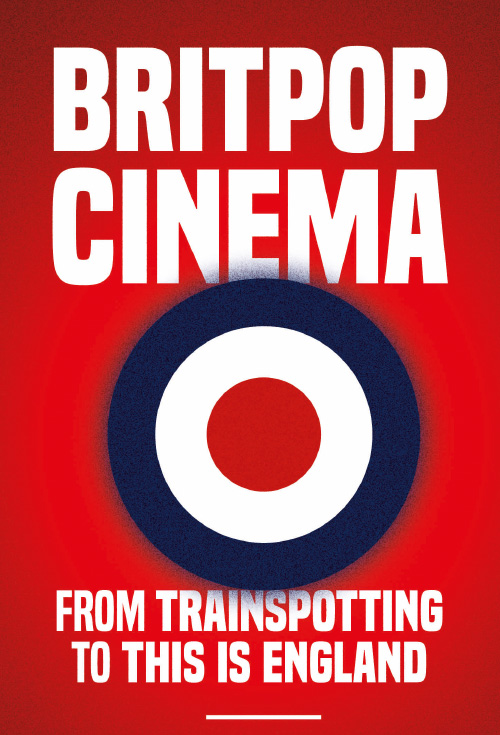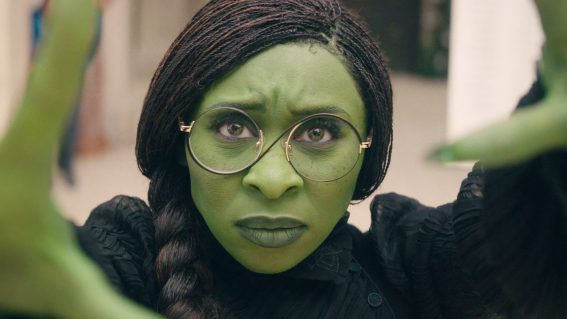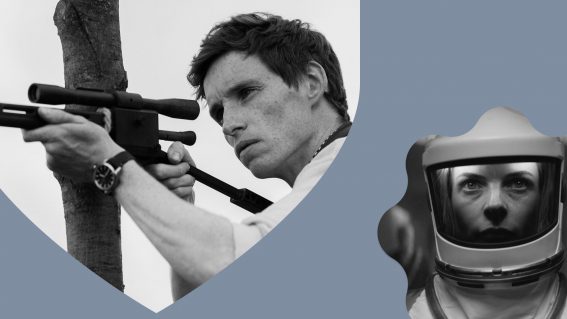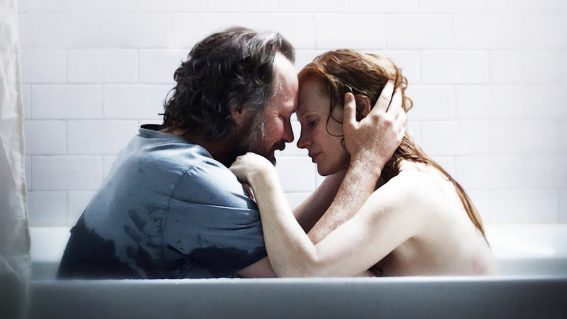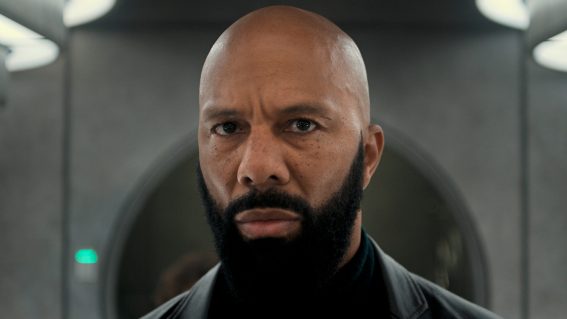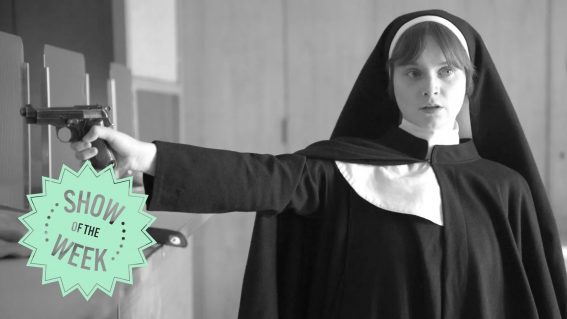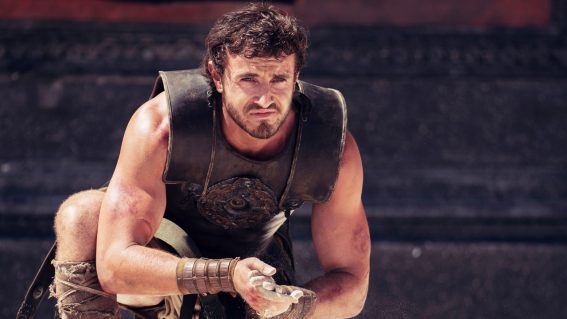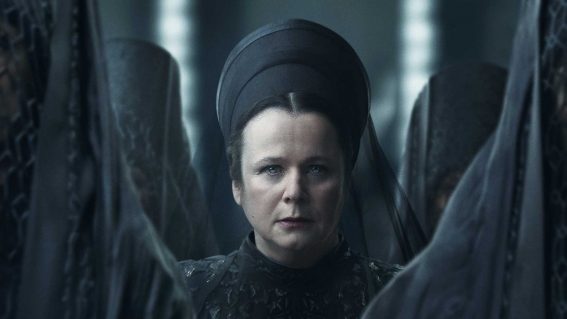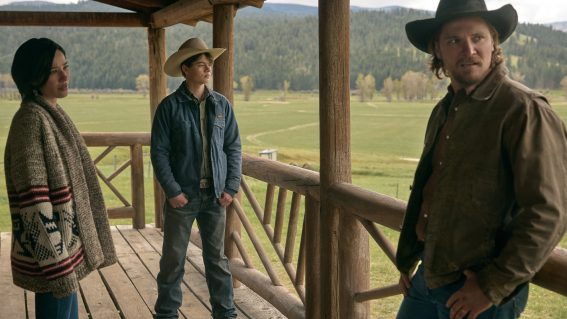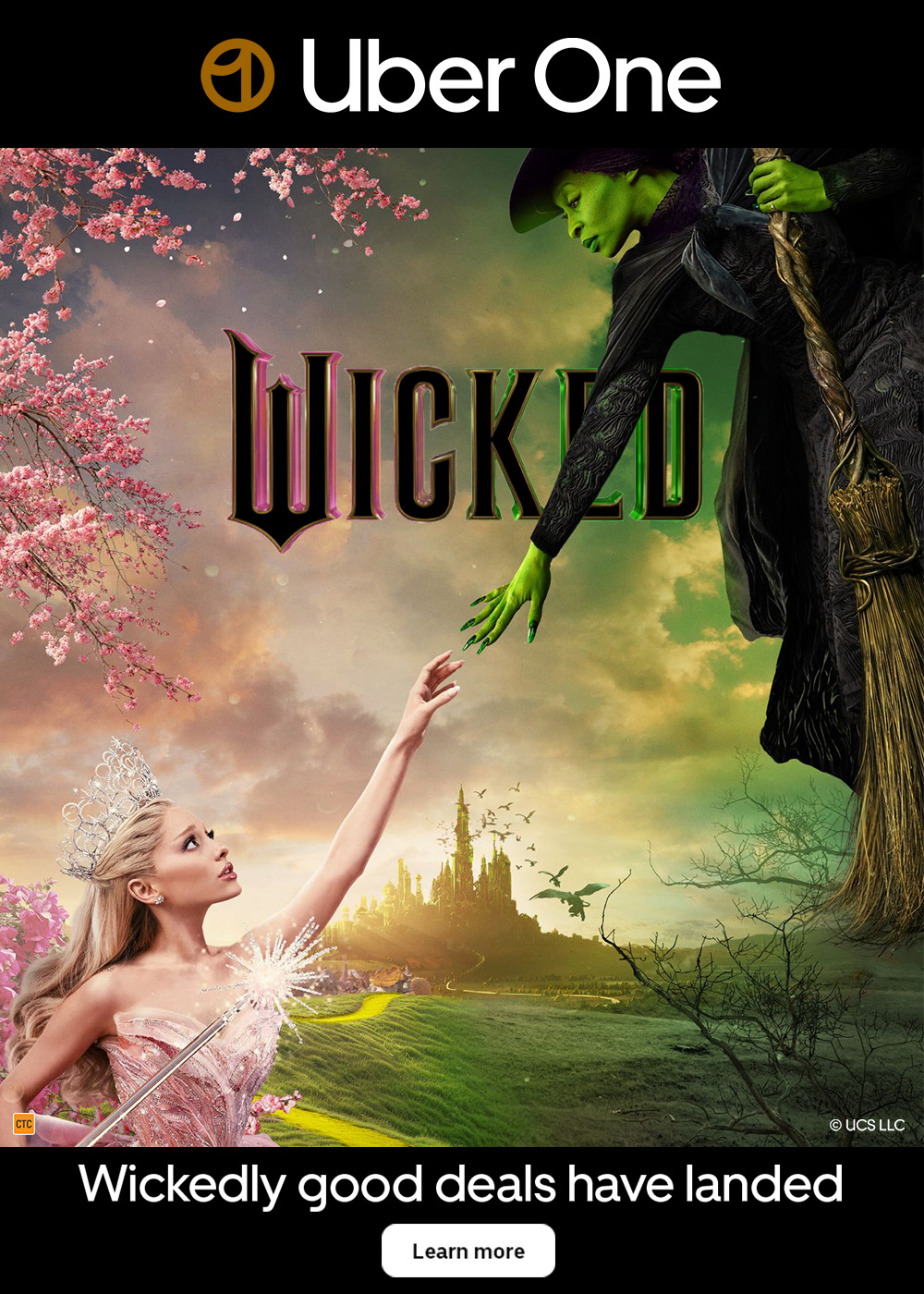Jonathan Glazer’s surreal, sweaty gangster classic Sexy Beast
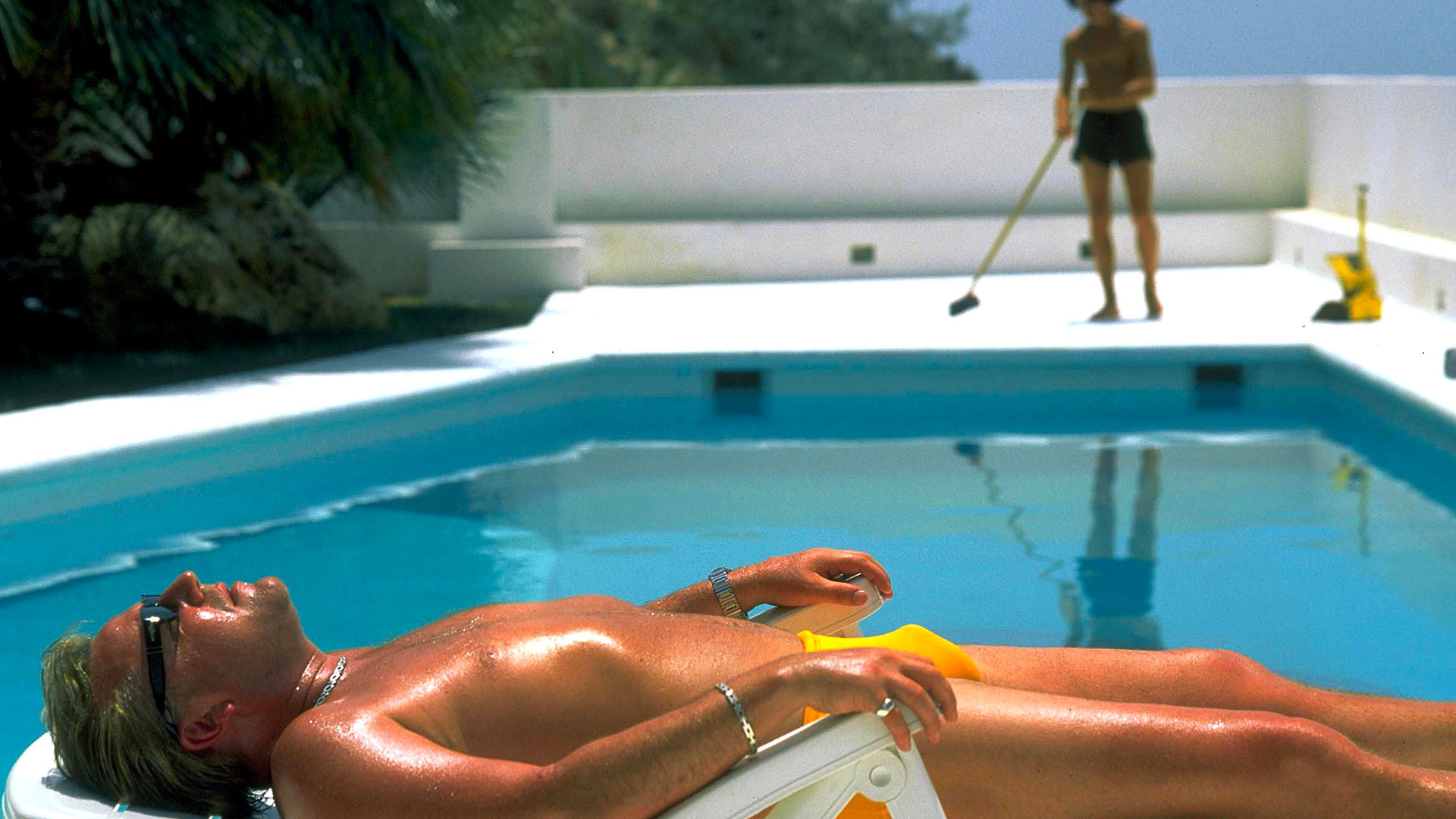
Sexy Beast is the latest modern classic to get revisited for streaming, with a new prequel series. You’re perhaps better to go back to the original, celebrated in this excerpt from Matt Glasby’s book Britpop Cinema.
Sexy Beast
Britpop Cinema hits all the classics of the period – Shallow Grave, Trainspotting, The Full Monty, Lock, Stock and Two Smoking Barrels, Shaun of the Dead and many more—combining eyewitness accounts, close analysis, and social history to celebrate a golden age for UK film. You can buy a copy right here.
Glasby examines Jonathan Glazer’s sometimes surreal gangster classic Sexy Beast in this excerpt from the book, reproduced with the publishers’ permission. (Yes, it does contain spoilers).
Though it is a far more serious proposition than the likes of Lock, Stock and Two Smoking Barrels, Sexy Beast also gets its energy from jarring juxtapositions. The heat and dust of Spain, where safecracker Gal (Ray Winstone) has retired with his wife Deedee (Amanda Redman), is set against the dank, grey environs of London, where he risks it all for One Last Job, that fateful gangster cliché. Mellis and Scinto’s mercilessly matter-of-fact dialogue is contrasted with Glazer’s music-video inspired bursts of surrealism. And the ever-erudite Ben Kingsley plays tough, as envoy Don Logan, while eterna-geezer Winstone shows his softer side. It is a film that appears to be what critic Steve Chibnall called ‘gangster light’, before segueing into ‘gangster heavy’ territory, then back again: the perfect Britpop cinema trajectory.
We begin amid blazing sunshine and swollen summer hues, with the portly Gal lying prone by his pool. ‘It’s like a sauna. Furnace. You could fry an egg on my stomach. Oooooohhhhh,’ goes his orgiastic voiceover as we see him surrounded by the detritus of the Loaded dream: cold beer, B&H, tanning oil. ‘Who wouldn’t lap this up? It’s ridiculous, tremendous, fantastic, fan-dabby-dozy.’ As the lascivious bassline of ‘Peaches’ by The Stranglers strikes up, Gal struggles to a sit, then places a cool flannel on his Speedo’s, a big man but in bad shape, to paraphrase the rather chillier Get Carter. ‘My rehearsing was lying on a beach for two weeks, eating and drinking because I had to put on two stone,’ Winstone told biographer Nigel Goodall. ‘Fantastic.’ At the bottom of the pool are two interlinked hearts, representing Gal and Deedee’s love inked forever in concrete, untouchable beneath apparently calm waters. Gal gets to his feet and that oxymoronic, faintly mocking title fills the screen in fluorescent pink. The image says it all: life may be sweet, but it is far too good to last.
Immediately, the first of many bad omens crashes into view. A huge boulder comes unmoored from the cliff, tumbling past Gal, and cracking the bottom of that perfect pool. Later, as Gal, Deedee, Aitch (Cavan Kendall) and Jackie (Julianne White) enjoy a barbeque, the flames shoot up towards Gal, another of paradise’s hidden hazards. The next scene has Gal, Aitch and the pool boy (Alvaro Monje) hunting rabbits, their bullets failing and guns falling to pieces like some sun-soaked Freudian fever dream.
Over dinner at a local restaurant, the real horror first breaks the surface. As Gal and Deedee try to decide between calamari and the ‘chicken thing’, a strained-looking Aitch and Jackie join them, immediately ordering brandy. There has been a phonecall, from London, asking if Gal is ‘definitely retired’, even for a ‘no-risk’ job. He is, of course, definitely. ‘You’ve asked me and I’ve said no,’ he says, evenly. ‘That’s it. So why are we still talking?’ Jackie’s lips twitch twice before she answers, ‘It was Don Logan.’

The camera takes a perceptible step back, Deedee mutters, ‘Oh Christ!’, and Gal grips the table. It is a wonderful moment, shot like a Mexican stand-off. Logan is coming over tomorrow, it transpires, a done deal, and Gal’s thoughts turn from dinner to a distracted eulogy for his new life. He says how much he loves this restaurant, his wife, his pool. That it is everything he dreamed of when he was in prison. ‘No risk?’ he almost cracks. ‘No fucking risk? Nine years of my fucking life, no fucking risk!’ He looks to the menu as if for wisdom, but finds only calamari, his fate sealed.
While the plot displays the hallmarks of ‘gangster heavy’, how it plays out is pure Britpop cinema. Once Logan appears – the snarling embodiment of Angry Small Man Syndrome – his profanity-strewn, ever-expanding flashbacks have the effect of concertinaing time, as in Trainspotting. ‘I know a bloke who knows a bloke who knows a bloke. Now, you know this bloke,’ he begins. ‘Do I?’ asks Gal. ‘This is a bloke you know.’
Logan then details how his boss, the London gangster Teddy Bass (Ian McShane), met the manager of a private bank (James Fox) at an orgy, and plans to rob his top-secret facility. But the story unfolds in tense back-and-forths taking place between different characters in at least three different time-zones, a flashback within a flashback within a flashback. It is an extraordinary piece of writing/editing and, set to a throbbing bass, creates tension where there should not be any, the events having already transpired. There is also an unsettling sense of inevitability; that what has happened, and what will happen, are set in stone.
Luckily, Glazer has a flare for abstract imagery, as shown in his music videos for the likes of Radiohead and Blur [and commercials like this rejected one for Cadbury’s Flake]. A cobalt-blue, day-for-night dream sequence shows Gal dining alone in the desert as a monstrous rabbit rides up on horseback and threatens him with a machine gun. As with Don Logan’s reappearance, the rabbit seems to represent the return of the repressed (no doubt inspired by that disastrous hunting trip), and will crop up at moments of existential tension throughout.
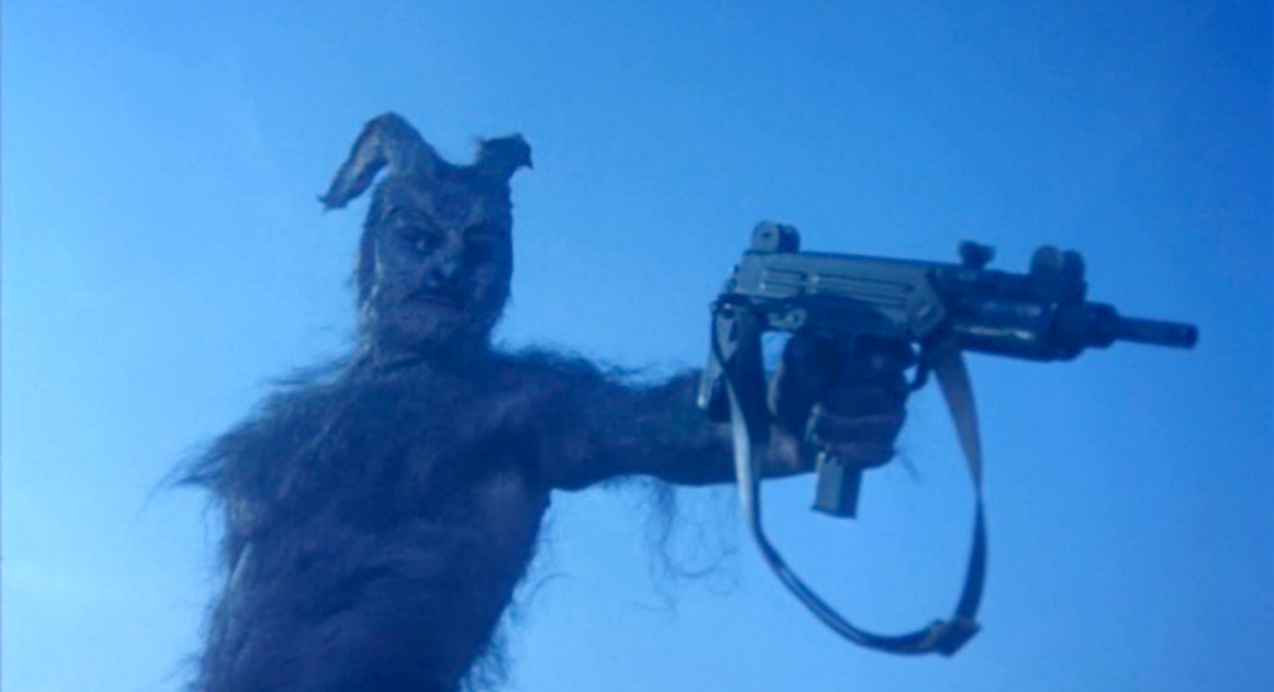
Meanwhile, Ivan Bird’s glorious camerawork helps even the more mundane material soar. As the boulder starts to gather momentum, we watch it rolling down the hill from its own POV. Later, when Bass leaves the bank having planted explosives in a safety-deposit box, the camera turns 360 degrees, apparently mounted to the revolving door. Once the robbery is underway we spin back to this moment, moving in tight on Bass’s face, then seemingly through his skull, along the street, through the foyer of the bank and into the vault. Here the explosives will trigger a flood from the Turkish baths next door, so Gal and co can carry out a daring underwater raid. It is an exciting, elegant piece of cinema, and while much of the film emphasizes how Gal is trapped, sequences like this speak of freedom, opening up different Pandora’s boxes of possibility. Says producer Jeremy Thomas, now: ‘The film itself was so unusual, it could never be thought of as being TV, it could only be film, Jonathan made a very cinematic film.’
These elements confirm the film’s place in the Britpop cinema canon, but like Trainspotting, Shallow Grave and Billy Elliot, Sexy Beast is so much more than the sum of its parts. As Thomas notes, Mellis and Scinto’s dialogue, all rat-a-tat repetition and poetic profanity, is ‘so incredible, it takes the film out of the ordinary into the extraordinary’. Kingsley agreed: ‘It is unique in structure, relying, like Beckett or Pinter, on the rhythm of the words.’ Indeed, few actors could make the line, ‘You’re the fucking problem you fucking Dr White honkin’ jam-rag fucking spunk bubble!’ sound like Shakespeare.
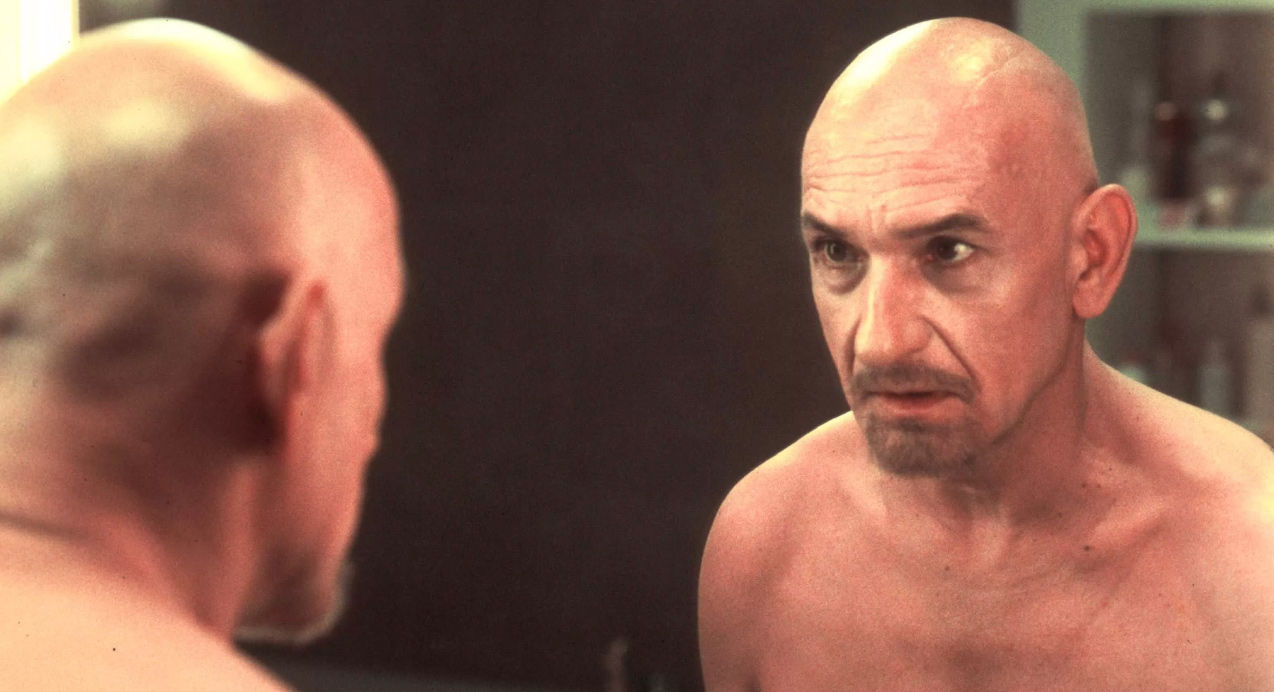
In a canny piece of counterintuitive casting we see Kingsley, better known for playing nobler roles, tormenting the peace-loving Winstone, perhaps the ultimate Britpop cinema bloke. As the latter told Goodall: ‘This can’t be right – he’s Gandhi’. Explains Thomas: ‘There’s a special alchemy where the actors find you or you find the actors. Instead of Ray Winstone finding Don Logan, he found Gal, and instead of Ben Kingsley finding Gal, he found Don Logan. It was a very clever twisting around of casting to give the film a special flavour because Ben Kingsley brought something incredible to Don Logan and Ray brought something incredible to Gal, a sort of sweetness, which he has.’
By any reckoning, Kingsley’s performance is one of the era’s standouts. With the sleek, perfectly shaved head of a man with no time for the frivolity of hair, and a short-sleeved shirt that speaks not of comfort, but efficiency, Logan inhabits his body with lock-jawed tension, moves like a heat-seeking missile and speaks by sublimating violence into words. ‘Not this time, Gal. Not this time. Not this fucking time. No. No no no no no no no no no!’ he rants, a human Bren gun. ‘I liked his purity, his singularity,’ said Kingsley, who based the character on his maternal grandmother. ‘She was an extremely violent and unpleasant woman,’ he told IFC’s Escape from Hollywood. ‘She was racist, fascist and anti-Semitic. When I play great heroic Jews… I’m sticking two fingers up at her. When I played Don Logan, I was channelling her.’
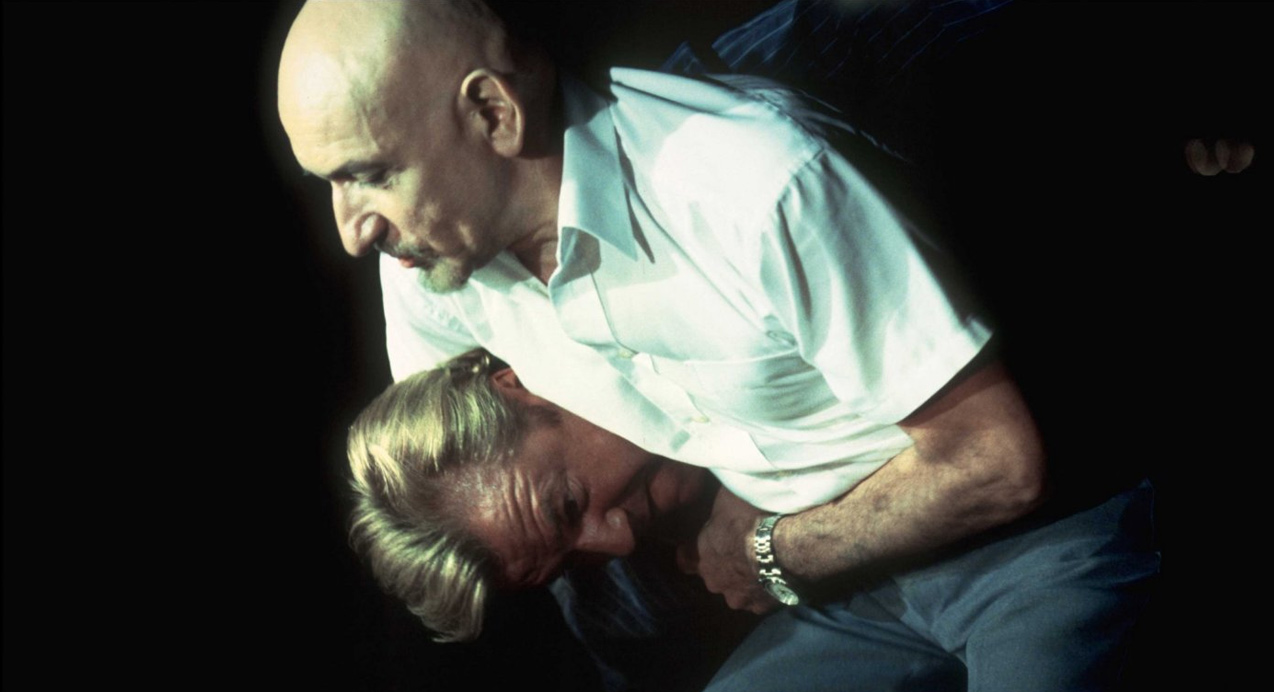
Like Old Mother Kingsley, there is little to redeem Logan, a human so swaddled in hate, he degrades everything he touches, whether pissing on Gal’s floor or accusing innocent airplane staff of touching his ‘front bottom’. In the indolent Spanish sun, he is a thunderstorm made flesh; a man who brings only pain and, unable to stop himself, has learned to thrive off the discomfort he causes. Recalls Thomas: ‘I remember his first day on set, the first scene we shot, the fantastic costume designer Louise Stjernsward and Jonathan got him this costume that made him look really powerful, that shirt with the short sleeves, those shoes, the way he walked through that airport. When it came to lunch break I went into the canteen and Ben Kingsley was sitting by himself at one end and the entire crew were pressed into a corner down the other. They were all completely terrified by him, he already put out that strength of character: don’t mess.’
In fact, it is not fear that differentiates the film from Lock, Stock and the softer Britpop cinema offerings, but love. For all his twistedness, Don has come to Spain to see Jackie, for whom he carries a torch (or perhaps it is for Gal). ‘Don’t say nothing, but I quite liked her,’ he sniffs, shy in the face of sudden vulnerability, although this quickly becomes, ‘I fucked her!’ when challenged. Indeed, Don seems more obsessed with upsetting the foursome’s equilibrium than actually getting Gal to do the job. ‘I won’t let you be happy, why should I?’ he spits at one point, like a spurned suitor. But Gal has found something Logan cannot begin to comprehend, let alone compromise. When Don brings up ‘dirty’ Deedee’s past as a porn star, Gal’s rebuttal is touchingly direct: ‘I love her with all my heart.’
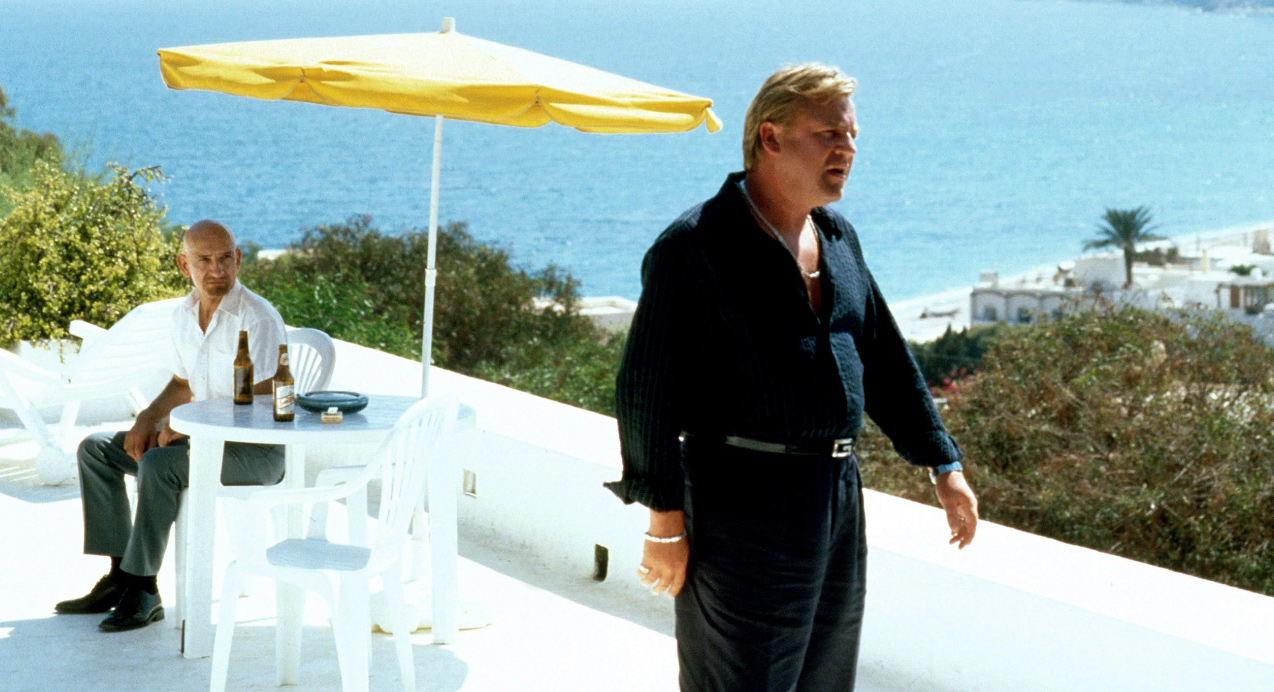
Glazer finds some imaginative ways to visualize the intensity of these feelings: those interlinked hearts at the bottom of the pool, Deedee framed by a heart-shaped smoke ring; a swoony kiss that has them, briefly, swimming in the stars. ‘Usually I get to punch the geezer, not kiss the girl,’ said Winstone. As if to prove the point, when Don finally attacks, it is Deedee and Aitch who kill him, although we don’t learn exactly what has happened until the end of the film.
In London, the job goes without a hitch, even though Teddy Bass suspects foul play, and Gal escapes to enjoy a typically uncertain Britpop cinema coda. Gal, Deedee, Aitch and Jackie chat contentedly by the pool, paradise restored except for a nagging voice in Gal’s head. ‘You were right Don,’ he says. ‘Technically speaking you were right. But you’re dead. So shut up!’ As the improbably sunny ‘Sway’ by Dean Martin plays, recalling Shallow Grave’s use of ‘Happy Heart’ over the end credits, the camera burrows through those interlinked hearts on the bottom of the pool, into the bowels of the earth, where Don lies dead, buried and distinctly unimpressed. But he has finally met his match. Above him stands the rabbit, readying itself for violence, and with all eternity left to enact it.





